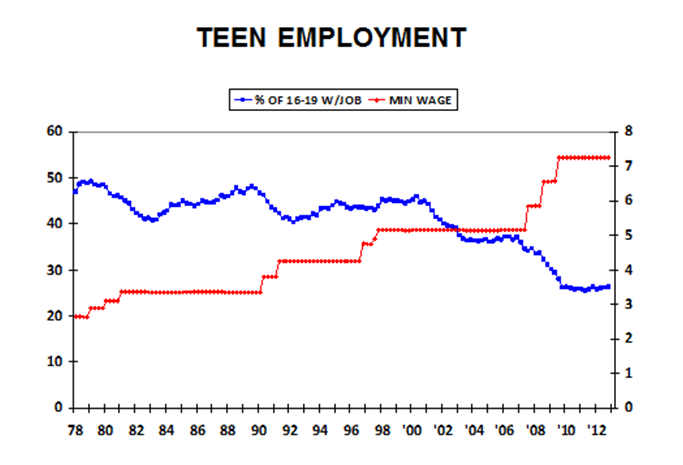Prop B Follow Up: A Word of Caution
January 2, 2019
With the coming raises in the minimum wage for Missouri, it’s important to consider some of the more negative effects of raising wages. While in theory, it is always better to have more money, there can be downsides to ensuring everyone is making more pay.
When you increase a person’s pay, that money has to come from somewhere. Usually, the idea is that higher wages will come from a company’s profits, distributing some of the wealth from corporate heads to their lowest level employees. However, this is rarely the case, especially for smaller businesses or fast food restaurants.
In the case of a family-owned or competitive business, the profit margins tend to be slim. The owners of these businesses aren’t really raking in the cash, and sometimes they’re barely staying afloat as is. That means that when a mandatory pay raise is implemented, the money isn’t going to come from a huge pool of profits they’ve been keeping from their workers. It’s going to come from a rise in prices, meaning the consumers pay for the new wages.
While this increase in prices won’t entirely neutralize the effect of getting paid more on minimum wage workers, it does mean that those who don’t benefit at all from a wage raise will just pay higher prices for no benefits. Those who were making minimum wage will be getting paid more overall, and that’s good. But it comes at the cost of those who are already making above the new minimum wage or salaried workers lose money. Many would say this is a price worth paying to help the lowest wage workers improve their quality of life, but it makes it more difficult to convince the general, voting populace that a wage increase is worth it.
Another effect to consider is how raising pay will affect employment rates. Even with an increase in prices, a small or local business may be unable to stay out of the red if wages are raised too drastically. This means that in the long run, overall employment could decrease if wages are raised so high that significant numbers of small businesses are forced to close.
Higher starting pay also means that employers will seek fewer workers at higher hours in order to make sure they’re getting the most bang for their buck. Mediocre or poor workers will be discarded in favor of working the best employees even harder. Alternatively, the worst workers will be laid off and the money saved from not having to pay them high wages will be put towards focusing on other aspects of the business or automation. These all eliminate a need for a plethora of minimum wage workers and instead create a highly competitive employment market even at an entry level.
Overall, yes, a raise in minimum wage is a good thing. When done correctly and in manageable increments, raising pay will help ensure that people at the lower end of society have better lives at little cost to others. But when wages go up too drastically, there can be many negative effects that make it hard to pass policy about wages and hard to sustain a fair market under them. Balance is key, and finding a way to improve people’s lives without creating too many ripple effects is difficult.


